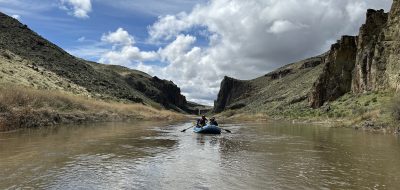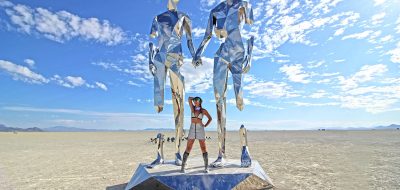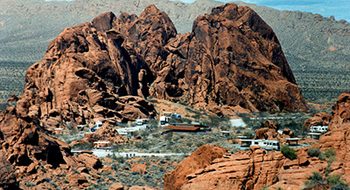By Bob Difley
New York Times columnist Tom Friedman published a letter in his column last week written by a friend of his and published in his friend’s local newspaper. As he stated, the writer makes a good point, which I repeat here.
“I’d like to join in on the blame game that has come to define our national approach to the ongoing environmental disaster in the Gulf of Mexico. This isn’t BP’s or Transocean’s fault. It’s not the government’s fault. It’s my fault. I’m the one to blame and I’m sorry. It’s my fault because I haven’t digested the world’s in-your-face hints that maybe I ought to think about the future and change the unsustainable way I live my life. If the geopolitical, economic, and technological shifts of the 1990s didn’t do it; if the terrorist attacks of Sept. 11 didn’t do it; if the current economic crisis didn’t do it; perhaps this oil spill will be the catalyst for me, as a citizen, to wean myself off of my petroleum-based lifestyle. ‘Citizen’ is the key word. It’s what we do as individuals that count. For those on the left, government regulation will not solve this problem. Government’s role should be to create an environment of opportunity that taps into the innovation and entrepreneurialism that define us as Americans. For those on the right, if you want less government and taxes, then decide what you’ll give up and what you’ll contribute. Here’s the bottom line: If we want to end our oil addiction, we, as citizens, need to pony up: bike to work, plant a garden, do something. So again, the oil spill is my fault. I’m sorry. I haven’t done my part. Now I have to convince my wife to give up her S.U.V. Mark Mykleby.”
I would add to his statement “we, as citizens, need to pony up,” that using your RV more, not less, might satisfy that request. Living–or spending more time–in your RV you will use less energy (fossil fuels) than you would in your home, which requires much more energy to heat, cool, light, and tend the lawns, than your RV. Because moving our rigs around is the largest use of fossil fuel energy, we can lower our fuel consumption by reducing speed, driving less, choosing destinations that are closer together, and staying longer at each campground.
That plan also has its side benefits: a more stress-free trip between campgrounds, slower speed will enable you to see more as you travel, to have the time to visit interesting sites along the way, by reducing the amount of time driving you increase the amount of time actually camping, and you will have a chance to learn more about the area you are in when you stay longer.
If you are fulltimer and/or boondocker, where you provide much of your own energy (solar panels, wind turbine) you will achieve an even larger reduction in your fossil fuel usage.
And though you gain all these benefits, you can also feel good about yourself because you are helping to reduce the amount of fossil fuels and energy that you use–a win-win combo for both your RV lifestyle and for the country.
Learn more about boondocking and saving money on the road with my ebooks: BOONDOCKING: Finding the perfect Campsite on America’s Public Lands and 111 Ways to Get the Biggest Bang for your RV Lifestyle Buck.








Mark
Wake up folks – the oil we run everything on has nothing to do with fossils. The petroleum products we use are created at great depths under the earths crust – have been forever and will be forever. That is why we risk the very deep wells off shore – its easier to drill 5 miles or more through water than it is to drill through rock (the Earths crust). If you want to find out more Google ‘renewable oil’ and do some reading.
jerry cooney
With approx 240M vehicles on the road in the US today that are going to require diesel or gasoline for fuel for many more years, I have never understood why we continue to “tilt at windmills” and think that there is something just around the corner that is going to change fuel usage. Why do we continue to ignore natural gas as a fuel for large vehicles? It is plentiful, clean and the best source is right here in the US and as I understand it, many of todays vehicles are convertable to this fuel. Distribution points are easy to establish and could even lead to the ability to fuel right at home.
Instead of cash for clunkers to get fuel burners off the road, why don’t we offer free conversions and simply put a small road tax on natural gas to cover the cost. Can you imagine the number of people that could be put to work to convert that many trucks, buses and motor homes and save the RV, pleasure boat industry and many others. Virtually none of the other solutions being discussed today such as wind, solar etc have any effect on transportation and as a further benefit, the free conversions could be limited to US built products only.
fred
I have an RV and refuse to feel guilty about using it. I will continue to try to cut down on fuel consumption, use of materials that are pollutants, etc. and will try to go green as much as I can. The “green” I am referring to here is CASH, MONEY, DINERO. I am not trying to save the planet, I am trying to keep as much financial resources available to me to make it to the end. All of this planet saving, alternative fuels, etc. is bunk. Sorry if I offend you all but come on, this has been going on for decades and we are no closer now than then. It is a “the sky is falling” tactic.
Big Jim
Spent my whole career (44 yrs.) in the Chemical Industry. I am waiting with bated breath for someone to develop all that ‘green energy’ that folks talk about. If
the truth be told about the amount of energy that hydro-electric, solar, and wind produces, most of us would be be dry camping in our back yards most of the time. I admit that there are a few product such as carpet that are being produced from corn based technology. But when it comes to plastics that make up a goodly portion of our RV’s, it is going to be a long time (not in my life time) before someone receives the benefits of products that are not a derivitive oil and natural gas.
Tom Hargreaves
My greatest concern about petroleum is the burning of it for energy. As with coal, burning petroleum served mankind well for awhile by providing energy effectively as we advanced from animal energy and firelight to the hypersonic vehicles, LEDs, and computers or today. However, like coal, it isn’t renewable and produces products of combustion that are harmful in various ways. And, like coal, petroleum is used in many products that are far more long lasting (and arguably more useful) than momentarily burning it for energy. To paraphrase the Shah of Iran (remember him?) some 5 or 6 decades ago: ‘Petroleum is so valuable for other things, why are we burning it?’
I believe that it is time to wean ourselves off of oil as an energy source and save it for more valuable things — and thereby stretch its usable life by centuries (by which time we should be able to manipulate atomic and molecular structure using fusion energy as may be necessary).
Meanwhile, back in reality, I intend to continue to BURN as little petroleum as I reasonably can without becoming obsessive about it, and promote new and better energy sources as I can.
That’s my story and I’m sticking to it!
Tom
Mark B
I sure love reading about things we should do, however rarely happens. The only real way to stop the environmental impact of RVs is simply to go tenting.
The use of the term “Fossil Fuels” is testiment to old text books in school that should be burned as fuel instead of read. Fossils never produce fuel, oil etc. In fact the argument (based on USSR studies and deep drilling) are starting up again about the so-called facts that oil indeed came from animals and plants in the first place. Finally, what irks me greatly, is that Obama (in his infinite wisdom) condemned the “dirty oil” of Alberta, Canada and chose to open the seas for drilling. Well, Mr. Obama sure has egg on his face (or is it oil) these days. Our Alberta tar sands, and the subsequent oil that USA buys from us, is actually relatively clean (to extract) and Obama needs to take a holiday. That is all. Just some irky comments from Canada. Cheers all.
Tom
There are only three ways to bring a new product to market:
1) Build the proverbial “better mousetrap”
2) Subsidize it
3) Legalize/Mandate it
Since it’s oil that keeps this economy moving forward, the gov’t will be loathe to cut it’s own throat. You’ll hear the officials talk the talk but, few, if any, will ever walk the walk. So, don’t expect it to be legalized/mandated anytime in our lifetimes – unless it’s the ONLY choice.
Subsidies exist today for renewables. One only has to check the tax code to understand how much they can get back from the gov’t. Subsidies, however, artificially inflate a market in an unsustainable way. After all, if our goal is to replace oil, then we could subsidize electric cars/trucks/planes/etc… until we achieved our goal. Unfortunately, that would mandate a MASSIVE change in lifestyle, destroy our economy, push unemployment through the 30% mark (making The Great Depression look like a walk in the park) and possibly cause an uprising against the very gov’t that pushed for change.
Ultimately, it will take a better mousetrap to replace the fossil fuel economy. (That, or running out of oil.) People will move to the most economical option available. When the time comes that some other power source can beat oil on energy/cost, then we’ll see the beginnings of a new economy.
As far as the gulf and who’s to blame? Obviously, someone made a decision to disregard the safety protocols. There are many thousands of wells running just fine. One bad example does not make all of us responsible for the people who chose to ignore warnings given by people smarter than they.
Ex11B
My motorhome IS my home and the carbon footprint for it is my responsibility to bear. In an effort to at least partially “bring the universe back into balance” my towed vehicle is a Honda Fit purpose-bought to bring my combined RV/car mpg to an arguably reasonable number. When I see others driving RVs with ratings of 4-5 mpg pulling a Hummer, Suburban or a 1-ton pickup I just shake my head. Sure, the difference between that owner and me is only one of degree,but I can’t help thinking that he/she is a travelling indication to the rest of the world that RVers just don’t give a damn. “We’ve got money, we’ve got time, and we don’t give a damn.”
Dan Rambow
think one point Bob was making, was that you don’t have to feel guilty about using an RV, with respect to the environment. With a little planning and forethought, you can reduce that so-called ‘carbon footprint’ even in a large diesel RV.
It does take more energy to maintain that humble sticks n’bricks home, unless you are sitting around in the dark with candles. (so-to-speak), and hunkered down, not living life, then your other environmental costs would be light.
My wife and I probably put on 12k miles each year on two cars, commuting and doing the usual things. When we start full-timing later this year, I expect around 6000 miles per year in our RV, and perhaps a few thousand in the dingy.
All the utilities used will be much less that what keeps our small rental condo going each year.
And we will be living life, doing more, and not hunkered down in some fixed abode waiting around for the end to come.
Don
The main thing is we need to get started with moving away from foreign sources of energy and begin developing alternate form here at home. Administration after administration has talked about the need to move away from our dependence on foreign sources but this talk hasn’t been backed up with deeds. I like what I’m hearing about producing oil from algae and electricity from wind (I like what I’ve seen in Palm Springs, CA and Sweetwater, TX) and solar cells. The problem is, to get started, these industries need some incentives and we haven’t been doing a very good job of providing them up to now. It makes no sense to talk about doing something anymore – now is a time for action. We’re killing ourselves and mortgaging the future with our current way of doing things.
Joe
I appreciate the kudos, but we’ve probably actually increased the amount of energy we will use by quite a bit. We plan to spend 2-3 times as many nights in the new rig, and take some longer trips, which will cancel any savings by some margin.
I’m sure you’ve seen studies where hybrid car drivers end up driving more because the cost is lower. It cancels any overall cost savings or fuel-use reductions. We’re probably the RV version of the hybrid drivers in this article:
http://content.usatoday.com/communities/driveon/post/2009/07/68494710/1
It should be a ton of fun though.
Bob Difley
Joe – We are in agreement. We can never–or at least not comfortably–avoid using no energy, but we can all cut back on what we customarily use. People who study energy usage say that reduction of use is the quickest, most efficient way to reduce our energy needs. And you’ve certainly done that. Kudoos to you. If everyone took the same attitude toward their RV lifestyle–or any liffestyle–it would make a huge difference.
Again, thanks for your comments and insight.
Joe
I think we’d both agree that there are plenty of things that RVers and the RV industry could do to reduce fossil fuel use (a good thing, I think we’d both agree).
Still, I think it’s disingenuous to call RVing a low impact activity. Can we do things to lower the impact – of course. Will RVers ever get close, in terms of low impact, to people who are content to stay put in a humble dwelling – I don’t think so.
I don’t think that’s a problem, or a sin, or anything to feel bad about. People use energy. It’s the way the world works.
I have spent A LOT of time thinking about RVs, fuel use, and what things will be like over the next 10-15 years since our family just bought a low mileage rig with a lot of life left in it. In our case, we bought a smaller quality built class C and even considered what options might be out there to convert to Compressed Natural Gas at some point down the road. The smaller size will almost double fuel mileage over what we’ve been using, and we have a bike rack instead of a toad (I ride ~50-100 miles a week anyway).
Here’s an interesting talk about energy use for living, and I’d love to see something similar for RVs one day.
http://www.ted.com/talks/catherine_mohr_builds_green.html
BTW – fuel conversion options for current rigs might be a good topic for articles down the line. Obviously diesel’s have options with bio or algae fuels, but many of the gassers (E-450 in our case, but also F-series trucks for 5ers) have CNG options coming available over the next 5 years.
Bob Difley
Joe – Every one of those components of your Rv can be manufactured without the use of fossil fuels using sustainable, non-polluting alternatives. The technology exists. For these technology advancements to proceed to the level of production that will enable “economies of scale” and the consequential reduction in cost, and to encourage manufacturers, investors, venture capitalists, and the public to embrace these technologies requires the same incentives given to previous energy producers, like oil companies, who still–inexplicably–receive millions of dollars in government subsidies. These subsidies should instead be diverted to alternative energy sources. I agree that we can probably never eliminate oil completely, but we can sure make drastic cuts in the amount of oil we import from unfriendly countries, reduce the amount of oil used worldwide that would have the effect of cutting off funds to regimes that sponsor terrorist groups, and reduce the amount of oil that we have to extract from dangerous sources–like a mile deep in the Gulf–and cut the amount of CO2 pollutants from fossil fuels that enter our atmosphere. The only drawback, for those who are short-sighted, is that the switch over will cost more money in the short term until all these new sources grow to provide the bulk of our energy needs. But cost should not be the sole deciding factor whether these technologies move rapidly ahead.
Joe
Our RV’s are a product of modern petroleum chemistry. Everything from the fuel that powers them, to the plastic in the pipes and holding tanks, to the rubber in the tires, to the carpet, to the rubber roofs, to the tar in the roads we drive on, and so on.
I love RV’s, and I love visiting the fabulous natural places that the RV takes us to. Calling it an environmentally responsible lifestyle is a pretty big stretch.
Who’s ready to ‘pony up’, park the RV, and stay at home?